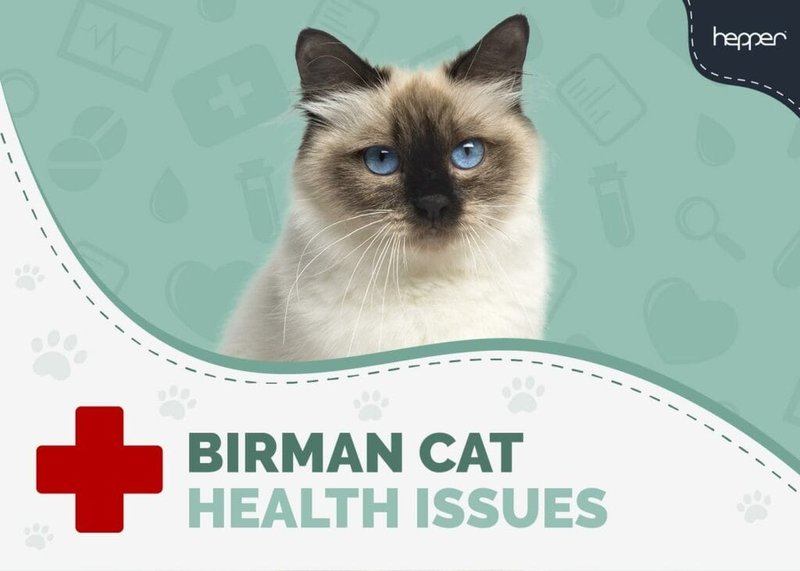
Just as we humans keep an eye on our health, it’s vital to do the same for our pets. Preventing health issues in Birman cats is about understanding their specific needs and potential problems. Let’s dive into some of these common health issues and discuss how you can keep your furry companion in tip-top shape.
Dental Issues: The Hidden Problem
Dental health is crucial for your Birman, and this is often overlooked. Many folks don’t realize that cats can suffer from gum disease and tooth decay, just like humans. They may not show obvious signs of pain, which makes it easy for these issues to go unnoticed. Bad breath, difficulty eating, or excessive drooling can be red flags indicating that something’s off.
To keep your Birman’s teeth and gums healthy, regular dental check-ups are key. You might be wondering how often to visit the vet; aim for at least once a year. Additionally, consider brushing their teeth at home using cat-friendly toothpaste—yes, it’s a thing— or providing dental treats designed for cats. These can help reduce plaque buildup and keep their mouths fresh.
If you catch dental issues early, your vet can often treat them with simple procedures. However, if left unchecked, these problems can lead to more serious health concerns. So, think of dental care as a crucial part of your cat’s overall health regimen.
Obesity: A Growing Concern
Obesity is a significant health issue for many cats, including Birmans. Just like humans, when we indulge a bit too much and don’t exercise enough, weight gain can sneak up on us. A chubby cat can face serious health threats, such as diabetes, joint issues, and heart disease. Honestly, no one wants to see their beloved pet struggle because they’re carrying around extra weight.
To help your Birman maintain a healthy weight, focus on their diet and exercise routines. You might want to start by measuring their food portions—yes, it can be scary to realize how much you’re feeding! Twice-daily feeding schedules are often recommended. If you’ve got treats in hand, choose healthier options like small pieces of cooked chicken or special cat treats that are low in calories.
Playtime is also essential! Interactive toys can keep your Birman mentally and physically stimulated. Whether it’s a feather wand or a laser pointer, just a few minutes of play each day can make a big difference in keeping those extra pounds at bay.
Heart Disease: A Silent Threat
Heart disease can be a silent thief in the night when it comes to our feline friends. Birmans are prone to a specific type known as hypertrophic cardiomyopathy (HCM). This condition can cause the heart muscle to thicken, ultimately affecting its ability to pump blood effectively. You might not notice any signs until it’s quite advanced, which is why regular vet check-ups are critical.
Symptoms to watch for include coughing, difficulty breathing, or sudden lethargy. If you observe any of these, don’t hesitate—make an appointment with your vet. They might perform an ultrasound to get a proper look at your cat’s heart.
Preventing heart disease can be as simple as keeping up with their weight management, as discussed earlier, and ensuring they have a balanced diet. Regular veterinary visits will help catch any issues before they become serious.
Kidney Issues: What You Should Know
Kidney health is another important area for your Birman. Chronic kidney disease (CKD) is unfortunately common in older cats. The kidneys filter toxins from the blood, and when they start failing, it can cause a range of symptoms, including excessive thirst and frequent urination. Keeping an eye on your cat’s water intake and bathroom habits can provide clues about their kidney health.
To help prevent kidney problems, ensure your Birman stays hydrated. Some cats prefer running water, so a pet water fountain could be a great addition to your home. Also, consider incorporating wet food into their diet, as it typically has more moisture than kibble.
Regular check-ups will also allow your vet to monitor kidney function through blood tests, which can help catch issues before they escalate.
Gastrointestinal Problems: Tummy Troubles
Birman cats can be susceptible to various gastrointestinal issues, ranging from simple food sensitivities to more serious conditions like inflammatory bowel disease. You might notice signs like vomiting, diarrhea, or a decreased appetite. If your cat suddenly changes its eating habits or shows discomfort, it’s time to pay attention.
To keep tummy troubles at bay, start by feeding them a high-quality diet that’s appropriate for their age and health status. Gradually introduce any dietary changes to avoid upsetting their stomachs.
Also, be mindful of outdoor excursions—Birmans are curious and might nibble on things that don’t agree with them. After all, you wouldn’t want your cat munching on something toxic or indigestible! It’s all about balance and knowing what’s safe for your furry friend.
Preventative Care: The Best Medicine
The key takeaway from all of this? Prevention is essential. Regular veterinary visits are your best friend when it comes to spotting potential health issues before they become serious problems. Make it a routine to schedule check-ups and vaccinations to keep your Birman healthy.
Additionally, consider keeping a close eye on their behavior and habits. If something seems off, trust your instincts and consult with your vet. They’re there to help!
Caring for a Birman cat is a rewarding experience, but it comes with responsibilities, especially regarding their health. By being aware of common health problems and taking preventive measures, you can help ensure your furry friend leads a long, happy life. Regular vet visits, a balanced diet, and plenty of playtime are the pillars of good health for your Birman.
So, let’s raise a paw to prevention, care, and all the cuddles that await! After all, your Birman deserves the best, and with a little attention, you can help them thrive.

